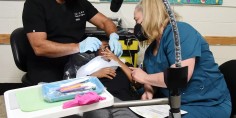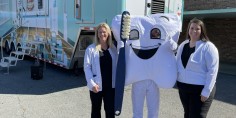As it widened health disparities between whites and people of color, the COVID-19 pandemic revealed how critically important it is for health care providers to expand their reach and build trust in communities of color.
One organization doing so effectively is Durham-based El Futuro, a nonprofit mental health services provider focused on underserved Latino communities. Although the common stigma of therapy as a sign of “weakness” runs strong in some Latino communities, El Futuro draws 1,800 clients per year for individual, group and family treatments.
A $675,000 grant from The Duke Endowment in May 2020 helped the organization offer culturally appropriate training to more than 1,000 mental health professionals, school counselors, community outreach workers and others through its La Mesita Latinx Mental Health Professionals Network.
During COVID, the Endowment also awarded a $413,400 grant to help El Futuro meet increased demand when the number of families referred for services more than tripled and El Futuro found itself with a waiting list of more than 300 people. And along with more referrals, the organization saw an increased acuity of mental health needs.
The new funding expanded the organization’s clinical capacity by training more licensed therapists. It also helped increase the technical assistance staff to improve access to treatment across North Carolina and bolster support to smaller providers in rural areas.








